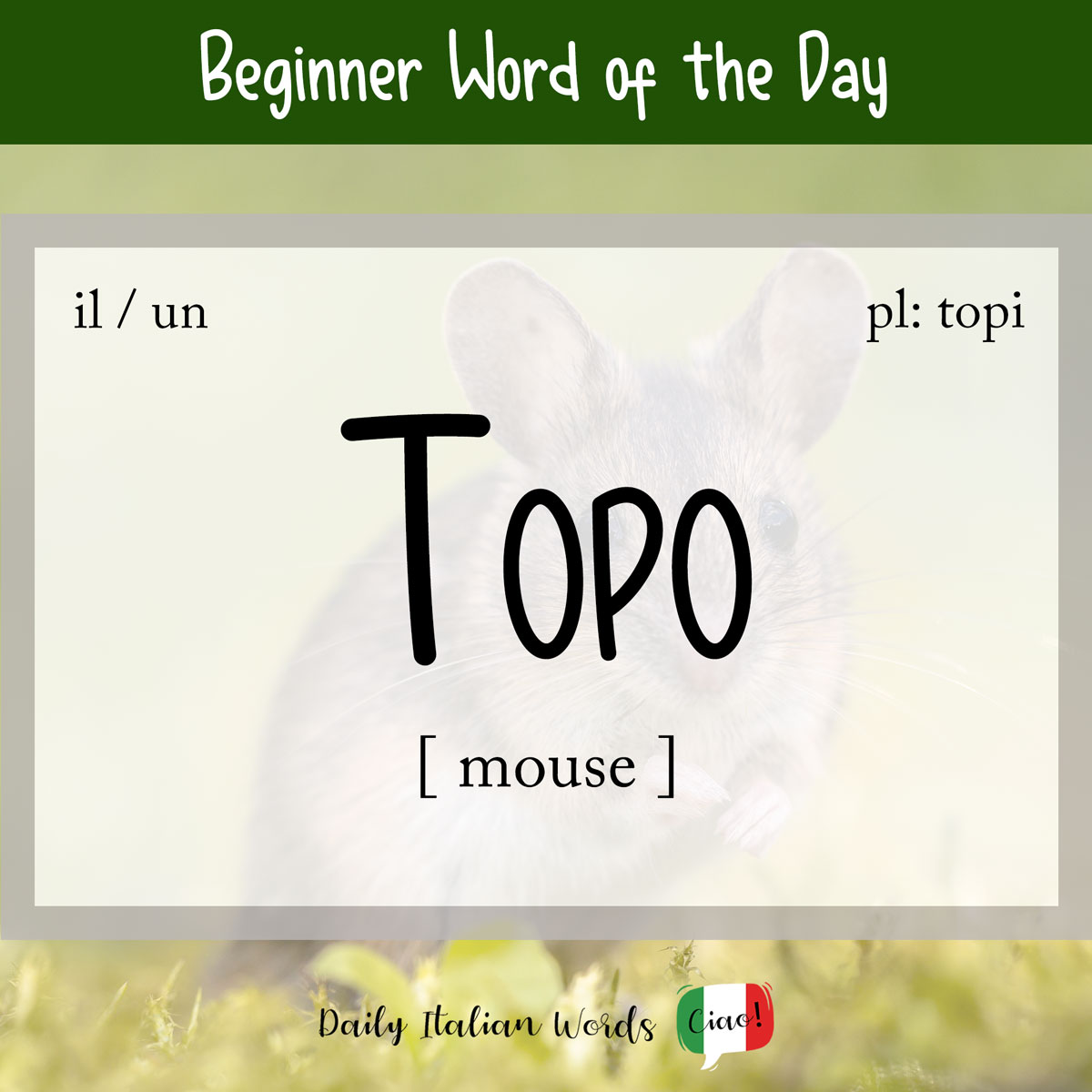Italian Word of the Day: Topo (mouse)
What is furry, cute and classified as both a house pet and a pest? Why, the humble mouse of course! The word for mouse in Italian is topo (masculine, plural: topi), which was originally a dialectal variant of talpa (mole). There are various synonyms for topo when referring to the family of rodent in Italian, …






